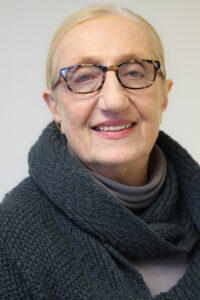In the lead up to MakeUp in NewYork we have met with Virginia Bonofiglio to discuss the evolution of the beauty industry. Virginia will be hosting a panel discussion with three alumni of FIT, coming from different generations, so they can share their own professional experiences.
We hope this article will uncover how science, technology, and the analysis of consumer data have had a profound effect on the beauty industry from the creation of beauty products and services to the marketing of them.
MUNY: How has the consumer behaviour evolved in the recent years, and how has technology influenced it’s attitude?

Virginia Bonofiglio: The beauty consumer has become better educated and much more knowledgeable about what she or he are putting on their skin. The internet has given everyone access to a plethora of information and this has made them better informed about ingredients, where they came from, how to apply them, and what other users think about these products.
This has transformed the power play. Consumer are no longer dependent on brand marketing but have had the opportunity to come into the discussion, especially with social media reversing or influencing the power dynamics. It seems that Brands are no longer the master of everything but have had to learn and to adapt to the consumer voice.
The birth and the success of indie brands is the expression of this brands with more power given to the consumers in the creation and development of beauty concepts.
MUNY: Do you think the priorities in beauty have also shifted from following the fashion trends to seeking or developing another aspect of humanity?
V.B: Definitely! Wellness has become an important addition to the beauty category. The consumer now stands at the center of the marketing mix armed with information and educated opinions. This consumer challenges the beauty industry to make better more, sustainable products which meet their creative wants and needs and does no harm to man or planet.
Consumers have become more aware and conscious of the composition of beauty products and are very savvy nowadays. It started with the clean beauty movement and is definitely emphasized with the Sustainability requests coming in all spheres of beauty.
MUNY: How have you adapted your courses to suit the evolution of society?
V.B: The Cosmetics and Fragrance Marketing program at the Fashion Institute of Technology has always focused on supporting and working with its industry partners. The program continues to upgrade its curriculum to educate the beauty executives of tomorrow to understand the new beauty consumer and their path to purchase.
Students currently graduate with an education which has taught them how to create a digital first marketing strategy based on data driven KPIs, with a product development component in which science, sustainability, and green chemistry stand at the forefront of the process.
This was unheard of fifteen years ago.
MUNY: with the rise of independent Beauty Brands and the focus on innovation, do you find that the profiles of students has changed over the years?
V.B: Indeed! That’s why the program has also taken into account the growing importance of entrepreneurship in the category, as the rise of niche brands continues to explode. In addition to our core product knowledge classes and marketing and business courses focused on the global beauty industry, we have also included a class in beauty entrepreneurship, a global brand management course with a focus on digital and a standalone color cosmetics class in which the emphasis is on the intersection of creativity and science.
MUNY: What’s next in teaching Beauty?
As the beauty industry changes so does the CFM program at FIT.
Our latest areas of interest include the use of AI in beauty, biotech and its importance in the development of ingredients for use in beauty products, and the rising role of story-telling and content creation.
Don’t miss out Virginia’s talk :
How Boldness, Creativity and Sustainability are influencing the new make-up
Wednesday 20 September at 11:30



